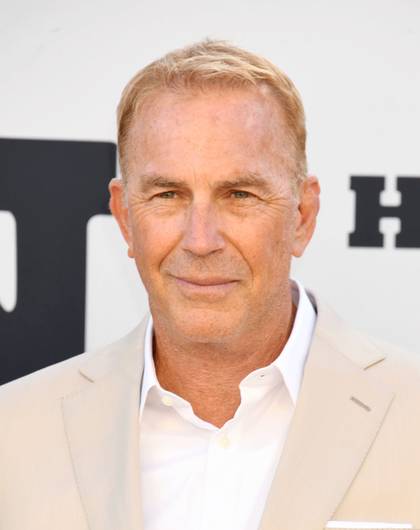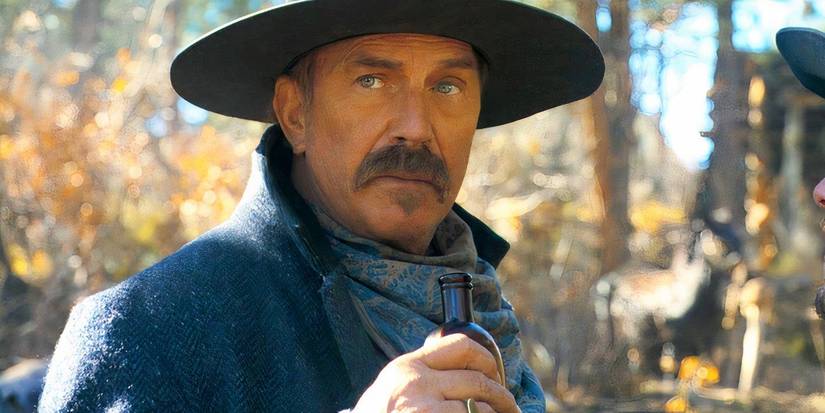Kevin Costner has starred in some classic movies, and here’s how they break down by decade. After he starmaking turn in Silverado, Kevin Costner’s movies were everywhere during the 1980s and 1990s. He had the full package as a movie star: good looks, natural charisma on camera and genuine acting talent.
For a time, it felt like Costner couldn’t miss, where most of his films were enormous hits (JFK, The Bodyguard) and even his move to the director’s chair with Dances with Wolves was a triumph critically and financially. Things changed after the messy production of Waterworld, and his A-list status would wane in the years that followed.
Which isn’t to say Costner has ever stopped. In the past 30 years, he’s hopped from duds like 3000 Miles to Graceland to hits like Man of Steel and Yellowstone; Kevin Costner’s Westerns have become a subgenre unto themselves. He’s also yielded at least one great film per decade, too.
The Untouchables (1987)
The Untouchables is a remake of an old 1950s TV series, and was the first true test of Costner’s star power. The resulting film is a textbook example of “They just don’t make ’em like this anymore.” Director Brian De Palma shoots the thriller with a painterly eye while the score by Ennio Morricone is lush and textured.
The cast is an embarrassment of riches, too. It gave screen icon Sean Connery a career-reviving comeback (not to mention a Best Supporting Actor Oscar), Robert De Niro is terrifying as Al Capone, and it introduced the world to Andy Garcia and Patricia Clarkson.
The Untouchables is a handsomely mounted period action thriller, with its stairway shootout remaining unforgettable. It’s to Costner’s credit that he nails Eliot Ness’ evolution from upright square to a man poisoned by the violence of fighting the mob and willing to bend the rules to get the job done.
Dances with Wolves (1990)
Dances with Wolves was quite a risk for Costner on several fronts. It was a Western for one, with the genre having been declared dead for around a decade. He was also directing it, with the film being labeled a vanity project that would be dead on arrival. Instead, Costner wildly overdelivered.
Dance with Wolves involves Costner’s suicidal Union soldier, Dunbar, traveling to a remote military post and making a connection with a group of Lakota. Over time, Dunbar finds himself falling in love with both the people and their culture.
Now, Dances with Wolves does lean on creaky tropes about Native Americans and White Savior narratives, but it also has a tremendous amount of heart. Costner lets the story slowly unfold as Dunbar becomes enmeshed in the Lakota’s way of life. He also stages some thrilling scenes, with the film’s violence being effectively blunt.
Dances with Wolves swept the Academy Awards, with Costner earning Best Picture and Director. This became controversial as Goodfellas was also nominated that year, and Costner’s film is now seen as an undeserving winner. This shouldn’t be held against Costner’s revisionist epic, though, which is still a rousing and romantic drama that rescued the genre from near extinction.
Open Range (2003)
The late 1990s were a rough period for Costner, where Waterworld was widely ridiculed in the press (though it actually made money), and his post-apocalyptic Western The Postman was a major bomb. Costner saw his star power declining as a result, with the 2000s also yielding plenty of flops like Dragonfly or Rumor Has It.
The 2000s had one of Costner’s best movies though, which was Open Range. This slow-burning Western followed ex-soldier Charley (Costner) and Boss Spearman (Robert Duvall) as they face off with a ruthless land baron. Costner also directed this 2003 outing, and he superbly cranks the tension as Spearman and Charley inevitably head to a showdown.
Open Range is in no rush to get there, taking time to establish the townspeople the duo encounters, while Charley unexpectedly finds himself falling for Sue (Annette Bening). The film tells a simple story, but Costner and his excellent cast fully imbue it with emotion.
Open Range also climaxes with an intense shootout, which feels both realistic and thrilling. It’s a messy sequence in many ways, where most of the shots miss and actually hitting a target feels like a victory. The film isn’t without flaws; it’s baggy in the middle and it’s doing nothing new, but it’s still a gem.
Molly’s Game (2017)
For much of the 2010s, Costner leaned into the mentor phase of his career. This saw him become a grizzled sage to a new generation of stars, with movies like Man of Steel or Jack Ryan: Shadow Recruit using his screen history to turn him into the ultimate father figure.
He’s quite literally a father figure in Molly’s Game, playing the uptight dad of Jessica Chastain’s title character. The movie is based on the book by Molly Bloom, the so-called “Poker Princess” who ran illegal high-stakes poker games for A-list celebrities, businessmen, and the Russian mob.
Molly’s story is a fascinating one, and none other than Aaron Sorkin acts as writer/director on Molly’s Game. The film was Sorkin’s directing debut, so he attracted a very starry cast, including Idris Elba, Michael Cera and Costner. While everybody puts in great work, the movie is absolutely Chastain’s show.
Despite being a reasonable hit, Molly’s Game is still an underrated character study and one with a great script. Costner doesn’t get much screentime, but he does appear in the movie’s best scene, where Molly and her father reconcile while he gives her a “free” therapy session.
Horizon: An American Saga – Chapter 1 (2024)
Costner’s schedule was largely dominated by Yellowstone from 2018 onward, so he hasn’t appeared in that many movies in the 2020s. He would later leave Yellowstone under contentious circumstances to mount the Horizon saga, a planned series of four epic Westerns revolving around the titular frontier town.
Costner spent millions of his own fortune on the project, filming the first two films back to back. The box office failure of Chapter 1 has put future entries into doubt, but while the movie is sprawling and messy, it’s also wildly ambitious and full of heart.
Costner is harkening back to an earlier era of filmmaking with Horizon, with the movie feeling like a Golden Age Western like How the West Was Won. There’s a vast cast of characters and plotlines – some of which are more involving than others. While Chapter 1 was sold on Costner’s character, he doesn’t even appear for the first hour.
Horizon is a dense, heavy meal, but also a rewarding one. Kevin Costner stages some intense scenes, like a harrowing Apache raid, and gives his ensemble players – like Michael Rooker or Abbey Lee – moments to shine. Costner thinks of all four Horizons as one big movie, so hopefully, he’ll find a way to complete his story.

- Birthdate
-
January 18, 1955
- Birthplace
-
Lynwood, California, United States
- Height
-
6 feet 1 inch







